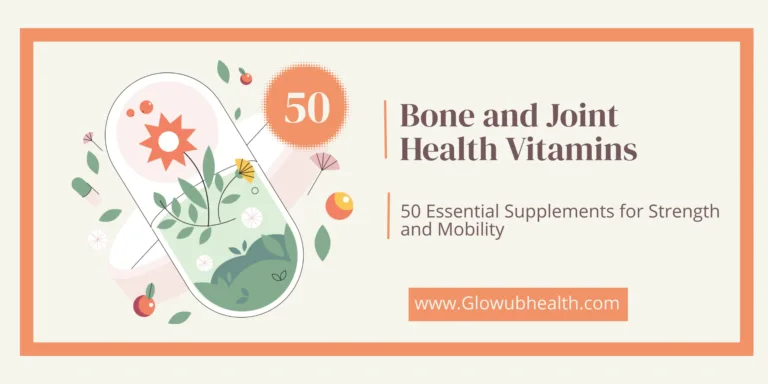10 Clear Signs of Healthy Liver Function in Adults (What to Look For)
The liver is the body’s largest internal organ and plays a vital role in sustaining life. It performs over 500 vital functions, from producing bile for digestion to filtering toxins from the blood. Because the liver works continuously and silently, most people only notice problems when damage occurs.
Knowing the positive signs of good liver health can help you catch trouble early. Below we outline 10 clear signs of healthy liver function in adults, explain why they matter, and offer science-based diet and lifestyle tips to keep your liver in top shape. Each sign is backed by medical sources, and we include a handy summary table at the end.
This content is for informational purposes only and is not intended as medical advice. Always consult with a healthcare provider for diagnosis or concerns about liver function and overall health.
How Your Liver Works
Your liver has many jobs that affect nearly every system in the body. Key functions include:
- Producing bile to digest fats. Bile, a yellow-green fluid made by the liver, carries waste and helps break down dietary fat in the small intestine.
- Synthesizing blood proteins. The liver makes albumin and clotting factors, essential for wound healing and maintaining blood volume.
- Storing energy. It converts excess blood sugar into glycogen for storage. When needed, glycogen is released as glucose to maintain steady blood sugar.
- Regulating nutrients. The liver breaks down fats, proteins, and carbohydrates, while also producing cholesterol and specific proteins that transport fats through the bloodstream.
- Detoxifying the body. It transforms toxic substances (alcohol, drugs, environmental chemicals) into harmless byproducts. It also converts ammonia (from protein digestion) into urea for excretion.
- Immune support. The liver makes immune factors and clears bacteria from the blood, helping to fight infections.
Because of these critical roles, a healthy liver contributes to clear skin, normal digestion, balanced hormones, a strong immune system, and more. When the liver is functioning well, you typically feel energetic and symptom-free. By contrast, early liver disease often causes vague symptoms (fatigue, mild digestive discomfort, etc.), so it’s important to recognize the positive signals listed below.
10 signs of healthy liver function in adults
1) Good Appetite and Normal Digestion
A healthy liver produces enough bile to digest fats and absorb fat-soluble vitamins. If you have a normal appetite and experience regular, comfortable digestion of meals, it suggests your liver (and gallbladder) are working properly. For example, after eating a balanced meal, you should feel satisfied—not overly full or nauseated—and have normal bowel habits. Proper fat digestion (no excessive bloating or indigestion) is a key indicator of healthy liver function.
Read More: Appetite Decrease : Understanding Causes, Symptoms, and When to Seek Help
2) Clear, Unblemished Skin (No Jaundice)
The liver filters toxins that can affect the skin. When it’s working well, you’ll have a natural skin glow and no persistent rashes or acne that stem from toxin buildup. Critically, no yellowing of the skin or eyes (jaundice) is a sign of health. Jaundice, which causes yellowing of the skin and eyes, happens when bilirubin — a waste product from the breakdown of red blood cells — accumulates as a result of liver problems.
In a healthy person, bilirubin is removed efficiently, so your skin and the whites of your eyes remain clear. Likewise, there should be no unexplained itching, spider veins, or palmar erythema (red palms), which are associated with liver trouble. In short, clear skin and eyes indicate your liver’s detox and pigment-processing roles are intact.
3) Normal Urine and Bowel Color
Healthy liver function keeps waste pigments within normal color ranges. Your urine should be pale yellow (not dark amber or orange) and your stool should be medium to dark brown. This color comes from bile salts in the stool. If the liver is blocked or diseased, bilirubin can leak into the blood and urine, turning urine dark, and stool can become pale or clay-colored.
Conversely, light yellow urine and brown stool are good signs that your liver is producing and excreting bile properly.
(Note: hydration and foods can also affect urine color, but persistently dark urine warrants attention.) In summary, normal urine/stool colors reflect a well-functioning liver
4) Consistent Energy and Vitality
A healthy liver helps maintain stable energy levels. By storing glycogen and regulating blood sugar, it prevents spikes or crashes in energy. If you feel generally energetic throughout the day (and not chronically fatigued after light activity), it suggests your liver is effectively providing glucose to your body.
Conversely, unexplained fatigue can be an early sign of liver stress. Healthy liver function also means your brain is free of toxins; if the liver removes ammonia and other metabolic byproducts efficiently, you’ll have clear thinking and alertness. In short, feeling alert and energetic (with no brain fog or undue tiredness) is a sign your liver’s energy-boosting and detox duties are in order
5) Normal Liver Blood Test Results
One of the most objective ways to assess liver health is through blood work. Standard liver function tests measure enzymes and proteins that the liver makes or processes, such as ALT, AST, ALP, GGT, bilirubin, albumin and prothrombin time. Healthy liver function is usually reflected in these tests being within normal ranges. For example, low-normal levels of ALT and AST suggest no ongoing liver cell injury, normal bilirubin indicates efficient bilirubin clearance, and a normal albumin level means the liver is producing proteins well.
If your recent check-up shows all liver panel results are normal, that’s a strong sign of a well-functioning liver. (Be aware that some mild elevations can be due to other factors, so always discuss results with a doctor.)
6) Healthy Body Weight
The liver plays a crucial role in metabolism. Maintaining a healthy weight—especially avoiding excess belly fat—is associated with liver health. Over 80% of people with nonalcoholic fatty liver disease (NAFLD) are overweight or obese. In other words, carrying too much weight makes fat accumulate in liver cells, impairing function.
A healthy adult weight (body mass index in the normal range) is therefore a sign that fat is not overwhelming your liver. Keeping weight steady through diet and exercise means you’re likely avoiding excess liver fat and inflammation.
7) Balanced Cholesterol Levels
The liver is the main site of cholesterol production and clearance. When liver function is normal, cholesterol and triglycerides are kept in balance. If your blood tests show healthy LDL/HDL cholesterol levels, it often reflects a liver processing fats properly. High cholesterol or triglycerides can indicate liver strain (since the liver makes and packages these lipids).
For example, NAFLD is frequently linked to high triglycerides and low HDL. Thus, maintaining or achieving good lipid levels through diet (e.g. a fiber-rich, lean-protein diet) is both a sign and a support of liver health
8) Stable Blood Sugar Levels
The liver buffers blood sugar by storing glycogen and releasing glucose as needed. If you have consistent blood glucose readings (no unexplained dips or spikes) and do not suffer from prediabetes or diabetes, it suggests your liver’s glucose regulation is intact.
For example, normal fasting glucose and hemoglobin A1c levels imply effective insulin and liver action. Conversely, chronic blood sugar swings or diabetes can stress the liver over time. Therefore, normal blood sugar control (often achieved by a balanced diet) is a subtle sign of good liver function.
9) Strong Immune Defense
Because the liver makes immune factors and clears bacteria from the blood, a healthy liver contributes to overall immunity. Adults with rare infections and quick recoveries (no chronic or unusual infections) often have a well-functioning liver. Likewise, the liver removes inflammatory byproducts; low chronic inflammation (normal C-reactive protein, etc.) can indicate efficient detox.
While many factors affect immunity, a smoothly working liver is a backbone of it. If you rarely fall ill and bounce back quickly from minor injuries or infections, it’s consistent with a healthy liver.
10) Normal Blood Clotting and Healing
A well-functioning liver produces clotting factors and albumin. In practice, this means wounds heal normally and you bleed for a typical amount of time when cut. For example, after a small cut or scrape, you shouldn’t bleed excessively. Easy bruising or prolonged bleeding from small injuries can hint at low clotting factors (as happens in liver disease).
Thus, quick wound healing and absence of unusual bleeding or bruising are reassuring signs that your liver’s synthetic (protein-making) function is healthy. (Note: certain medications like blood thinners can also affect clotting, so discuss with your doctor.)
Mini-Case: Jane and Mike are two healthy adults. Jane follows a Mediterranean-style diet and exercises regularly; she has normal blood tests, healthy energy, and keeps her cholesterol in check. Mike, on the other hand, eats many processed foods and drinks alcohol regularly. Over time Mike gained weight, reported fatigue, and had slightly elevated liver enzymes.
After switching to a fiber-rich diet and walking 30 minutes daily, Mike lost 10 pounds and his liver tests normalized. These examples highlight how lifestyle changes can produce the positive liver health signs above.
Signs of a Healthy Liver
| Sign of Healthy Liver | Indicator |
|---|---|
| 1. Good Appetite & Digestion | Strong appetite with no indigestion, thanks to adequate bile production. |
| 2. Clear Skin (No Jaundice) | Normal skin tone and no yellowing of eyes/skin (no bilirubin buildup). |
| 3. Normal Urine/Stool Color | Pale-yellow urine and brown stool, indicating proper bile and toxin processing. |
| 4. Steady Energy Levels | Consistent vitality without fatigue, reflecting stable glucose/glycogen balance. |
| 5. Normal Liver Blood Tests | ALT, AST, bilirubin, albumin, etc., all within healthy ranges. |
| 6. Healthy Weight | Body weight in normal range (obesity is a major risk for fatty liver). |
| 7. Balanced Cholesterol | Healthy LDL/HDL levels, showing proper fat metabolism. |
| 8. Stable Blood Sugar | Normal glucose levels (the liver’s glycogen storage works well). |
| 9. Good Immunity & Detox | Rare infections and quick recovery, indicating strong immune factors produced by liver. |
| 10. Quick Healing & Clotting | Normal wound healing and clotting time (due to sufficient albumin/clotting factors). |
Diet and Lifestyle for a Healthy Liver
Your lifestyle has a big impact on liver health. A nutritious diet and regular exercise can prevent liver disease and sustain those good signs above. Here are key tips:
- Follow a whole-food, balanced diet. Emphasize fruits, vegetables, whole grains, legumes and lean proteins (fish, poultry, tofu). A diet rich in fiber and plant foods supports digestion and weight management. For example, leafy greens, berries, beans, and oats are high in antioxidants and fiber. Reduce your intake of added sugars, refined carbohydrates like white bread and sweets, as well as salt. Saturated fats (found in fried foods, fatty meats, butter) should be reduced; instead use healthy fats like olive oil and nuts. In short, a Mediterranean-style eating pattern – with whole grains, olive oil, vegetables, fish and nuts – is often recommended as one of the best diets for liver disease. Indeed, studies show this diet helps prevent and even reverse fatty liver and associated risk factors.
- Drink coffee (in moderation). Surprisingly, research finds that coffee (even decaf) can protect the liver. Regular coffee drinking is linked with up to ~20% lower risk of chronic liver disease and fatty liver. The antioxidants in coffee might help lower fat buildup and inflammation within the liver. A review found that coffee drinkers had a significantly lowered risk of NAFLD and fibrosis. Aim for 2–3 small cups of coffee per day (without excess sugar or cream) as part of a balanced diet.
- Stay hydrated. Adequate water intake aids all organs, including the liver, in detoxifying. While water itself doesn’t “cleanse” the liver, staying well-hydrated supports healthy blood flow and kidney function, taking some workload off the liver.
- Limit alcohol. Too much alcohol can damage liver cells and is a major contributor to liver disease. If you choose to drink, do so responsibly — the CDC advises no more than one drink per day for women and two for men. Heavy or binge drinking dramatically increases the risk of alcoholic liver disease and cirrhosis. Even for “social” drinkers, pacing intake (and having alcohol-free days) can protect the liver. (If you have liver disease, your doctor may recommend avoiding alcohol entirely.)
- Exercise regularly. Physical activity helps burn liver fat and improve insulin sensitivity. A recent trial found that 150 minutes of moderate-intensity exercise per week (brisk walking, cycling, etc.) significantly reduced liver fat in people with NAFLD. Exercise also aids weight control and blood sugar stability. Aim for at least 30 minutes of moderate exercise on most days (or 75 minutes of vigorous activity) to keep your liver – and body – healthy.
- Maintain a healthy weight. As noted above, obesity (especially belly fat) is a major risk factor for fatty liver. If you’re overweight, modest weight loss (5–10% of body weight) can dramatically improve liver health. If you’re already lean, continue healthy habits to keep weight steady. Avoid yo-yo dieting; instead, focus on sustainable eating and activity. Monitoring your weight (such as using a scale or body composition) is a simple way to gauge liver-friendly progress.
- Choose liver-friendly foods. Some foods and nutrients are especially beneficial: green tea (rich in antioxidants), garlic, turmeric, and nuts have shown liver-protective effects in studies. For example, turmeric’s curcumin may reduce inflammation. More research is ongoing, but incorporating such foods (in foods or supplements) can support a healthy liver as part of a balanced diet. Conversely, avoid processed foods high in fructose corn syrup and saturated fat, which contribute to NAFLD.
- Avoid unnecessary toxins. The liver processes medications and chemicals. Use over-the-counter drugs (like acetaminophen) at recommended doses, and minimize exposure to industrial toxins (pesticides, solvents). Quit smoking and avoid inhaling fumes. If you take herbal supplements, be cautious: some (e.g. Substances like kava and concentrated green tea extract can be harmful to the liver. When in doubt, discuss supplements with your doctor.
- Regular check-ups. Regular blood tests can catch early signs of liver stress (like mildly elevated enzymes). If you have risk factors (family history, diabetes, heavy drinking), ask your doctor about periodic screening. Early intervention (adjusting diet, treating underlying conditions) can restore liver health in many cases.
By following these diet and lifestyle tips, you not only promote those 10 clear signs above, but also prevent liver disease. For example, one NIH-supported review notes that the best approach for NAFLD is lifestyle modification: weight loss through calorie reduction, Mediterranean-style eating, and regular exercise.
In practice, people who switch from fast food to home-cooked whole meals often see improvements in energy, skin, and lab results – exactly the positive changes we’ve listed.
Conclusion
Your liver is a silent workhorse, handling hundreds of essential tasks that keep your body functioning at its best—from detoxification and digestion to blood sugar and cholesterol regulation. While we often focus on the warning signs of liver disease, it’s equally important to recognize the positive signs of a healthy liver: clear skin and eyes, normal digestion, balanced energy, steady blood test results, and a strong immune system.
By understanding these signs, you not only become more aware of your body’s internal signals, but also empower yourself to take proactive steps to maintain liver health—through nutrition, exercise, hydration, and regular check-ups.
A healthy liver doesn’t shout—it hums quietly in the background. Pay attention to its signals, and it will support your well-being for decades to come.
FAQ
1. What are the first signs that my liver is healthy?
If your liver is functioning well, you may notice signs such as stable energy levels, regular digestion, clear skin and eyes, and healthy bowel movements. Blood tests like ALT, AST, and bilirubin within normal ranges are clinical confirmations of a healthy liver.
2. Can I have a healthy liver without any noticeable symptoms?
Yes. The liver often works silently and efficiently. Many people with a healthy liver won’t notice specific symptoms—rather, they’ll feel generally well, energized, and free of chronic fatigue or digestive issues.
3. How can I naturally support liver health?
Adopt a healthy liver diet rich in leafy greens, antioxidant-rich fruits, lean protein, and healthy fats. Avoid excessive alcohol, sugar, and processed foods. Staying active, well-hydrated, and limiting exposure to toxins also helps support liver function.
4. What foods are considered best for liver health?
Some of the best foods for liver health include:
Leafy greens (spinach, kale)
Garlic and onions
Beets and carrots
Fatty fish (rich in omega-3s)
Green tea
Turmeric
These are often part of the best diet for liver disease prevention and management.
5. How often should I check my liver health?
Adults should consider annual check-ups, especially if they have risk factors like obesity, alcohol use, hepatitis, or diabetes. Blood tests such as liver panels (ALT, AST, ALP, GGT, and bilirubin) can help monitor liver function.
6. Does a healthy liver help with weight management?
Yes. A healthy liver helps regulate fat metabolism and insulin sensitivity, both of which are essential for maintaining a healthy weight. Poor liver function can lead to fat buildup and metabolic issues.
7. Can liver health affect my skin and digestion?
Absolutely. A healthy liver helps eliminate toxins from the bloodstream, leading to clearer skin. It also produces bile, which is essential for digesting fats and promoting regular bowel movements.
8. Is it possible to reverse liver damage and restore liver health?
In many cases, yes—especially in early stages. Through a healthy liver diet, lifestyle changes, weight management, and avoiding alcohol or harmful substances, the liver can regenerate and restore much of its function.
9. Can supplements help maintain liver health?
Some supplements like milk thistle, NAC (N-acetyl cysteine), turmeric, and dandelion root are commonly used to support liver health. However, consult a healthcare provider before taking any supplements—especially if you have liver disease or are on medication.





